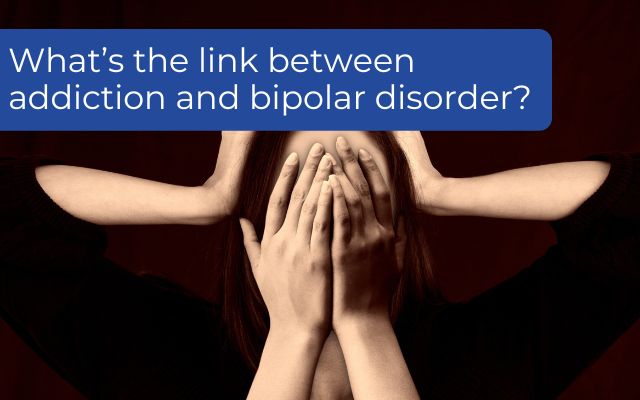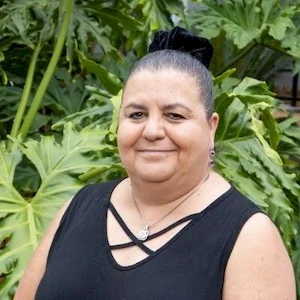
Bipolar disorder and substance misuse are closely linked
Could your bipolar mood episodes be driving substance misuse, and where can you access support for both conditions?
Dealing with addiction is hard enough on its own, but it is even more difficult when you’re dealing with a co-occurring mental illness such as depression or bipolar disorder, and it’s important to understand the link between addiction and bipolar. When another mental illness occurs alongside addiction it is termed dual diagnosis.
The link between mental illness and addiction goes both ways. About 50% of people with a severe mental illness are also affected by a substance problem. Moreover, roughly 37% of alcohol abusers and 53% of drug abusers have at least one other serious mental illness.
A common mental health condition that occurs in people with addiction and alcoholism is bipolar disorder.

What is bipolar and what causes it?
Bipolar disorder, formerly known as ‘manic depression’, is a mental illness characterised by mood swings between intense emotional highs (mania) and lows (depression).
These shifts in mood can last for days, weeks or even months at a time. Bipolar disorder can affect a person’s energy and concentration levels.
Developing bipolar is linked to genetics and chemical imbalances in the brain. If there is a dysfunctional family or a family history of bipolar, a person is more likely to develop this condition. Being in a traumatic environment has been found to be a risk factor for the development of bipolar.
In one study on people with bipolar disorder, approximately 60% had some kind of history with substance abuse.
Research has also found that people with bipolar I are three times more likely to abuse or be dependent on alcohol and seven times more likely to abuse or be dependent on drugs than the general population.
It is not fully understood why having bipolar predisposes people to problematic drug or alcohol use but being diagnosed with this condition has been found to cause a person to develop a substance use disorder. It is thought that people turn to substances as a way to self-medicate the symptoms of bipolar disorder or deal with troubles experienced as a result of this condition. Troubles include legal and relationship issues as well as suicidal thoughts.










Bipolar and substance abuse
However, drugs and alcohol often make the symptoms of bipolar disorder more severe.
Additionally, even people with no history of mental illness may develop bipolar as a consequence of problematic substance use. This is because frequent drug use causes physical changes in the brain, most commonly the reward system. But drugs and alcohol can also change parts of the brain linked to mood and behaviour.
In a person with dormant bipolar, the condition can be triggered by problematic substance use.
Bipolar disorder is separated into two categories: Bipolar I and bipolar II. There are differences in the order and severity of manic and depressive episodes between the two categories and bipolar I is more severe than bipolar II.
Manic symptoms include hyperactivity, an inflated sense of self-confidence, decreased sleep, extreme talkativeness, increased energy, racing thoughts, short attention span, risky behaviour and preoccupation with a specific goal.
Symptoms of a depressive episode include feeling depressed or hopeless most of the time, having a sense of worthlessness, weight loss or weight gain, restlessness, insomnia or sleeping too much, loss of interest or pleasure in previously enjoyable activities, feeling fatigued, excessive feelings of guilt, lack of concentration and thoughts of death or suicide. These symptoms need to last at least two weeks to be classified as a depressive episode.
Difficulties with diagnosing bipolar in addicts and alcoholics
Diagnosing an addicted person with bipolar disorder is very difficult because some of the symptoms of problematic substance use mimic those of bipolar. This is why it is important for a psychiatrist experienced in dual diagnosis to treat people with addiction and bipolar.
Both the addiction and the bipolar should be treated at the same time for the best possible outcomes of both conditions. Both medication and therapy should be used to treat co-occurring addiction and bipolar disorder.
One of the dangers of treating addiction in isolation is that untreated mental illness, in this case bipolar, could easily compromise a person’s sobriety. If bipolar symptoms persist, it is more likely that a person will relapse on drugs or alcohol in an effort to self-medicate.
Additionally, addiction treatment is more successful when the client is treated holistically i.e., when their co-occurring mental health issues are properly addressed in therapy.
Substance-induced mood changes can mimic bipolar and lead to the misdiagnosis of bipolar disorder. For example, stimulant use can present with symptoms of a manic episode including euphoria, increased energy, low appetite and paranoia. Stimulant withdrawal can produce symptoms that appear like a depressive episode including apathy, depressed mood and suicidal thoughts. In these cases, symptoms should resolve after a sustained period of abstinence – from several weeks to months.
Therefore, addicts and alcoholic entering recovery should be assessed by a psychiatrist well into their sobriety in order to receive an accurate mental health diagnosis.
Are you looking for an addiction treatment centre experienced in treating dual diagnosis clients? Contact us today.
Dual diagnosis shows people with bipolar disorder have higher addiction risk and benefit from integrated care for mood and substance problems, find support. Changes team counsellors are here to help you.Dual Diagnosis Link Between Addiction and Bipolar Disorder








